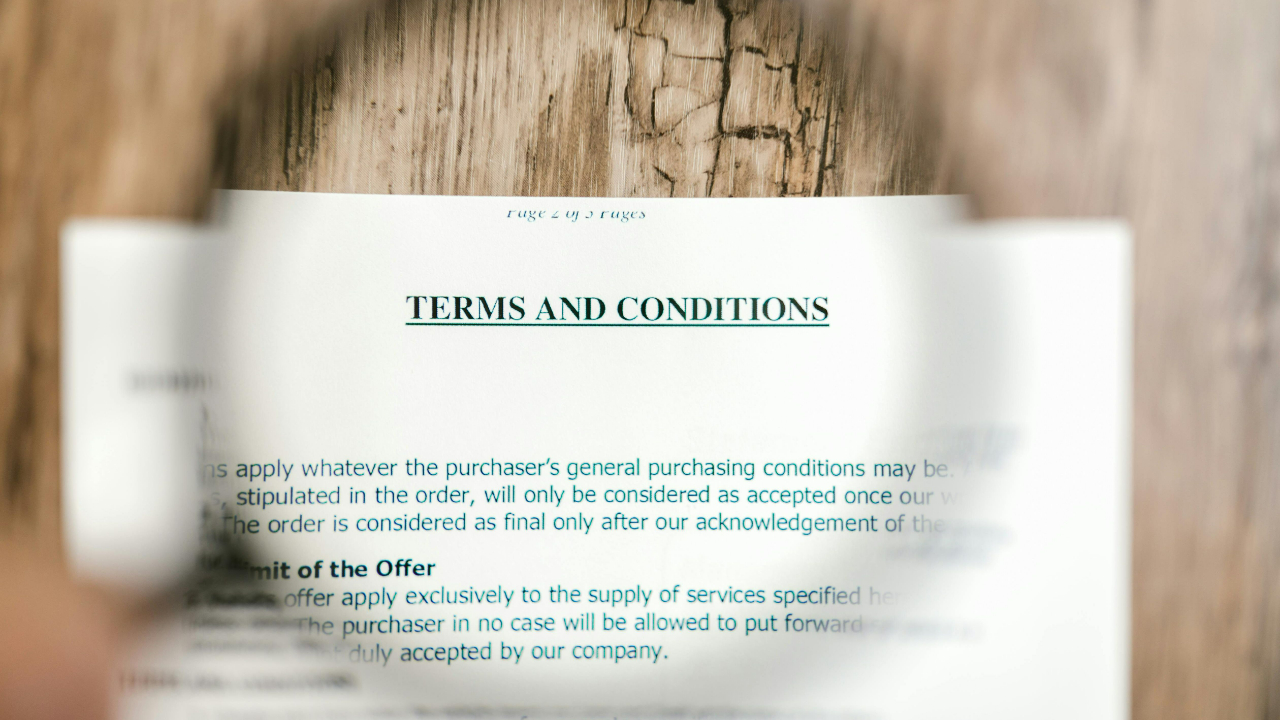Handling Tenant Complaints: Best Practices for California Landlords

Tenant complaints are part of managing any rental property, but how you handle them can make or break your relationship with tenants—and even your reputation as a landlord. In California, where tenant protection laws are particularly strong, addressing issues promptly and professionally isn’t just good practice—it’s essential. Here’s how landlords can handle complaints effectively, stay compliant, and maintain a positive rental environment.
1. Encourage Open and Easy Communication
The first step in handling tenant complaints is making it easy for tenants to reach you. Provide clear contact information and multiple ways to report issues—whether by phone, email, or through a property management portal.
Encouraging tenants to report problems early prevents small issues from turning into big ones. A leaking faucet, for instance, is a simple fix today but could become a costly water damage claim if ignored. More importantly, being responsive builds trust. Tenants who feel heard are more ...
Contract Clauses That Keep Your Business Safe During Crises

When unexpected events hit—like a natural disaster, pandemic, or supply chain disruption—contracts can make or break your business’s ability to survive. Strong contract clauses don’t just define what’s supposed to happen when things go right; they protect you when things go wrong. Here are the key provisions every business owner should understand and include to stay secure during times of crisis.
1. Force Majeure: The “Act of God” Clause
This is the most well-known crisis-related clause, and for good reason. A force majeure clause frees both parties from liability if extraordinary events prevent them from fulfilling their contractual obligations. Think natural disasters, wars, government shutdowns, or pandemics—events beyond your control.
To make this clause effective, it needs to be specific. Instead of vague phrases like “unforeseeable circumstances,” clearly list what qualifies: epidemics, cyberattacks, labor strikes, and other relevant risks. Also, include requirements for promp...
Passing on More Than Memories: How VA Benefits Can Support Your Loved Ones

When a veteran passes away, they leave behind more than memories of service and sacrifice—they leave a legacy. One of the most meaningful ways to honor that legacy is by ensuring their loved ones receive the support and benefits they’ve earned. The U.S. Department of Veterans Affairs (VA) offers several programs designed to help surviving spouses, children, and dependents achieve financial stability and access essential services during a difficult time.
Financial Support for Families
The most recognized form of support is the Dependency and Indemnity Compensation (DIC). This tax-free monthly payment is available to surviving spouses, children, or parents of service members who died in the line of duty or from a service-related condition. It can help offset the loss of income and provide ongoing financial security for families adjusting to life after loss.
Additionally, surviving family members may be eligible for Survivors Pension, a needs-based benefit for low-income, unremarried s...
The Legal Benefits of Using Escrow in Transactions

When money and property change hands—whether it’s a real estate deal, a business purchase, or even an online sale—trust becomes the cornerstone of the transaction. But trust alone isn’t always enough. That’s where escrow steps in. Escrow offers a neutral, legally protected space where both parties can safely complete their side of the agreement before any funds or assets are released. It’s not just a convenience—it’s a legal safeguard that protects everyone involved.
What Is Escrow?
At its core, escrow is a legal arrangement in which a neutral third party holds funds, documents, or assets until all agreed-upon conditions are met. Think of it as a digital or legal “holding pen.” The escrow agent (or company) follows the terms laid out in the contract and only releases the assets once both sides fulfill their obligations.
Escrow is commonly used in real estate, business acquisitions, online marketplaces, and intellectual property transfers, but its protection applies to any transactio...
What Happens to Your Business if You Become Incapacitated?

Most business owners plan for growth, taxes, and even retirement—but few stop to think about what happens if they suddenly can’t run the business due to illness, injury, or mental incapacity. It’s not a pleasant thought, but it’s one of the most important “what ifs” you can prepare for. Without a plan, your absence could lead to confusion, financial losses, or even the collapse of the business you’ve worked so hard to build.
The Reality of Incapacity
Incapacity isn’t limited to old age. It can happen at any time through an accident, stroke, or sudden illness. If you’re the key decision-maker or the face of your company, your temporary or permanent inability to work could bring operations to a standstill. Payroll, contracts, and client relationships might suffer, and employees may be left uncertain about what to do next.
When that happens, who has the legal authority to step in? Without clear documentation, even your spouse or business partner might not have the right to sign checks,...
Planning Your Estate? Don’t Overlook HIPAA Rules

Estate planning is often focused on wills, trusts, and asset distribution. But one crucial area that’s frequently forgotten involves your medical privacy—the rules set by the Health Insurance Portability and Accountability Act, or HIPAA. If your estate plan doesn’t address HIPAA regulations properly, your loved ones could face unnecessary stress and confusion when making healthcare decisions on your behalf.
Why HIPAA Matters in Estate Planning
HIPAA was designed to protect your private health information from being shared without your consent. While that’s good for privacy, it can create complications when family members or agents need access to your medical records during an emergency or while managing your healthcare decisions.
Let’s say you’re incapacitated, and your healthcare agent needs to make decisions about your treatment. Without proper HIPAA authorization, doctors and hospitals might refuse to share medical details—even with your spouse or adult children. This lack of acc...
Buying a Home? Here’s What Sellers Are Legally Required to Tell You

Buying a home is one of the biggest financial decisions most people make, and the excitement of finding “the one” can sometimes overshadow important details. While it’s true that buyers are expected to do their own due diligence through inspections and research, sellers also carry legal obligations. These disclosure requirements are designed to protect buyers from unexpected surprises—and in some cases, costly repairs or legal battles.
So, what exactly are sellers required to tell you before you sign on the dotted line?
Known Defects Must Be Disclosed

One of the most universal requirements is that sellers must disclose known material defects. These are issues that significantly impact the property’s value, safety, or usability. Examples include:
- Roof leaks or structural damage
- Mold or water intrusion
- Electrical or plumbing problems
- Foundation cracks
- Pest infestations
Even if the home looks picture-perfect, the law expects sellers to be upfront about hidden issues they ar...
Why Leadership Transitions Fail and How Legal Planning Can Save Your Business

Leadership changes are among the most vulnerable moments in a company’s life cycle. Whether it’s the retirement of a founder, the promotion of a rising executive, or the transfer of ownership to the next generation, transitions often bring uncertainty. Studies consistently show that many businesses either falter or collapse during this period—not because the company lacked talent, but because the handover wasn’t planned with enough foresight. The good news is that legal planning can turn what is often a stumbling block into a smooth, strategic process.
Why Leadership Transitions Fail
Several common pitfalls explain why businesses struggle when leadership shifts:
1. Lack of succession planning.
Many business owners delay creating a succession plan, either due to optimism, discomfort with the topic, or an assumption that a replacement will naturally step in. Without a roadmap, the organization may scramble, leaving decision-making fragmented.
2. Ambiguity in roles and authority.
If...
Balancing Care and Legacy: Estate Strategies for the Sandwich Generation

Being part of the “sandwich generation” means living between two sets of responsibilities: caring for aging parents while also supporting children, whether they’re still at home or starting their own adult lives. It’s a role full of emotional and financial challenges. Add estate planning into the mix, and it can feel overwhelming. But with the right strategies, you can care for your loved ones today while building a lasting legacy for tomorrow.
Acknowledge the Dual Role
The first step is recognizing the unique position you’re in. Unlike previous generations who may have only supported one side of the family at a time, today’s middle-aged adults often juggle medical bills for parents, tuition costs for kids, and their own retirement planning. Estate strategies need to reflect these layered obligations. That means looking beyond just “who inherits what” and focusing on long-term financial security.
Start With a Solid Foundation
Begin by ensuring you have core documents in place: a wi...
How to Make Inheritances Private and Avoid Unwanted Public Attention

Keeping inheritances private matters to many families — whether to protect beneficiaries from unwanted attention, prevent opportunistic claims, or simply spare loved ones a media spectacle. Privacy won’t happen by accident; it takes careful planning and the right legal tools. Here’s a clear, practical guide to keeping inheritances out of the public eye.
Start with a trust, not just a will
Wills become public during probate in most jurisdictions. A revocable living trust (or other appropriate trust type) transfers assets outside probate, so the details don’t enter the public record. Trusts also allow you to set conditions, stagger distributions, and name a private trustee to manage communications. Work with an estate attorney to choose the trust structure that fits your goals.
Read more: What Is the Difference Between a Will and a Trust?
Use beneficiary designations and joint ownership smartly
Accounts like IRAs, 401(k)s, life insurance policies, and payable-on-death bank accounts ...